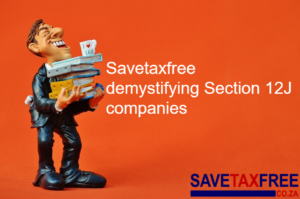End-of-year bonus trick or treat
By Leya Mall | 28 November 2018
Welcome back readers, to the Tax-Saving South African, where I walk with you in your personal journey through a range of financial themes.
Since we are in the festive season consumerism mood, let’s explore all the treats that come with this time of year. Not only are there Christmas parties and presents but if you are fortunate enough you may even get an end-of-year bonus. Sorry to be the Grinch that stole Christmas but your bonus isn’t tax free. Let’s see how we can make your Christmas bonus an investment of sort and not just a treat. The trick is to plan for it.
Before we budget for a bonus, let’s look at the reasons why employers gift us with a bonus because it isn’t compulsory. The South African Labour Guide defines two types of bonus:
The performance-based bonus: This is paid for an employee’s good performance and is usually a percentage of the employee’s salary. The performance can be measured against certain company standards and for a consistent amount of work.
The production-based bonus: In contrast, the production bonus is based on production measured against targets of the company rather than on performance standards.
Both types of bonuses are usually calculated as a percentage of an employee’s salary and added to their December salary. Before getting too excited about the moolah, this is where the friendly and ever-present taxman comes in: the bonus forms part of your pay as you earn (PAYE) taxable amount. How it works is the taxman looks at your annual income in total, ie, including your bonus, and takes a chunk of your money depending on what tax bracket you fall into. The thing is, that bonus might just move you into a higher tax bracket. Watch out for that – try to get information from your employer on that issue. At the very least, be prepared to be seriously shooketh at the amount deducted.
So, this leaves you with less of your bonus to spend on that festive season shopping spree or your end-of-year getaway. But here’s the exciting part we’ve been waiting for: what to do with the bonus.
- Reduce debt
This may not seem like such a good way of spending any additional income but if you overspent on your credit card (damn those black Friday specials)
this can help reduce your short-term debt which carries high interest rates. Other short-term debt that you can tackle are personal loans or those store cards and credit cards we discussed in a previous column.
- Open a tax-free savings account (TFSA)
Investing in a TFSA is the cheapest and most tax-efficient way for you to save. We’ve looked at the various investment vehicle types like exchange-traded funds, unit trusts, cash savings accounts, linked investment service providers and life insurance policies. You can top up on your existing TFSA or invest in a new one. It’s never too late to invest in your future.
- Allocate yourself a portion
Adverts during the festive season love to begin with the tiresome: “Treat yourself this Christmas with product X”. If you allocate a portion of your bonus to yourself and invest the rest, you can still afford that cute handbag your girlfriend has been eyeing (haha kidding). Of course, if you have been saving previously, you might now be able to afford that special something.
- Save for #januworry
January can feel like the longest month of the year if you overspent in December – and most people do. This is the time to bring out those savings you’ve previously accumulated for a rainy day, and January can be a rainy month with a chance of unexpected expenses.
Ideally you’d be able to divide your bonus and implement all four suggestions. That would make it a really festive season.
Just remember: while your company has shown that it values your contributions, it’s important to view any future bonuses as a possibility rather than a certainty when planning your festive season finances.
Continue following this series to become a wiser tax-saving South African!






